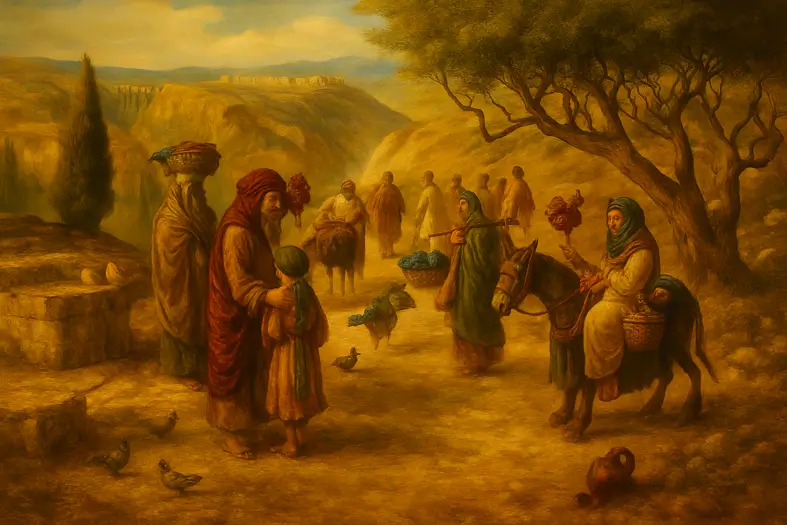


Forbidden for a man who is a eunuch to marry into the Jewish people.
This mitzvah prohibits a man who is a eunuch—whether naturally or due to injury—from marrying into the congregation of Israel. The Torah views mutilation of reproductive organs as a blemish incompatible with joining fully in marriage within the community. This law emphasizes the Torah’s concern for preserving holiness, wholeness, and dignity in family life and lineage.
Commentary & Classical Explanation:


Mitzvot that strengthen communal life — showing up, participating, supporting, and belonging. Community is where holiness is shared, prayers are multiplied, and responsibility becomes collective.
Represents the concept of spiritual intentionality, purity, and sanctity—set apart for a higher purpose.
Mitzvot that uphold fairness, honesty, and moral responsibility. Justice is kindness structured — ensuring that society reflects G-d’s order through truth, equity, and accountability.
Tied to the eternal covenant between G‑d and the Jewish people, including signs like brit milah and Shabbat.

Dive into mitzvos, prayer, and Torah study—each section curated to help you learn, reflect, and live with intention. New insights are added regularly, creating an evolving space for spiritual growth.

Explore the 613 mitzvos and uncover the meaning behind each one. Discover practical ways to integrate them into your daily life with insights, sources, and guided reflection.

Learn the structure, depth, and spiritual intent behind Jewish prayer. Dive into morning blessings, Shema, Amidah, and more—with tools to enrich your daily connection.

Each week’s parsha offers timeless wisdom and modern relevance. Explore summaries, key themes, and mitzvah connections to deepen your understanding of the Torah cycle.